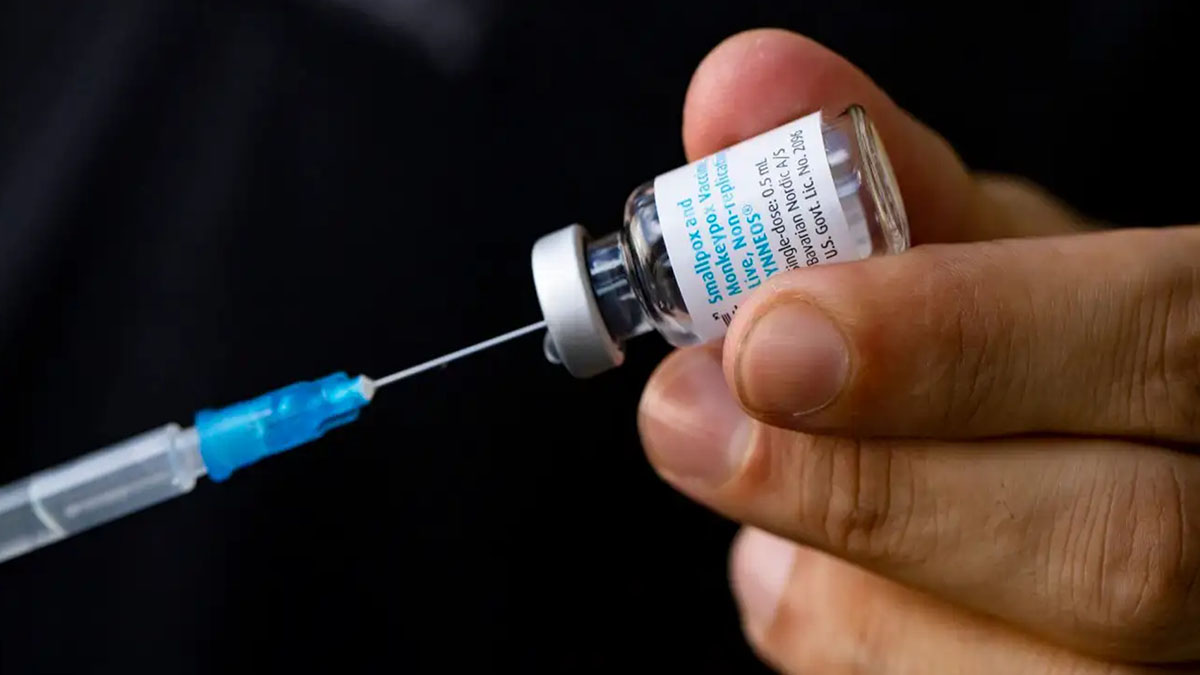
Recent research has shown that a single dose of a smallpox vaccine can significantly reduce the risk of contracting mpox, a disease formerly known as monkeypox. This finding is particularly relevant as mpox cases rise in certain regions. Here’s a closer look at how smallpox vaccines help protect against mpox, and what the latest research reveals.
Understanding Mpox and Smallpox Vaccines
Mpox (Monkeypox) Overview
Mpox is a viral disease related to smallpox, though it is generally less severe. The disease can cause flu-like symptoms, followed by a rash that develops into lesions. The infection is spread through close contact with an infected person or contaminated materials.
Smallpox Vaccines and Their History
Smallpox, a highly contagious and deadly disease, was eradicated globally by 1980 thanks to an effective vaccination campaign. The vaccines used to fight smallpox are also useful in protecting against mpox because the two viruses share similarities.
How Effective Is the Smallpox Vaccine Against Mpox?
Single Dose Protection
Recent studies suggest that a single dose of the smallpox vaccine provides a substantial reduction in the risk of contracting mpox. Specifically, it has been found to lower the risk by approximately 60%. This level of protection may vary depending on the specific variant of mpox.
Two Doses for Enhanced Protection
While a single dose offers significant protection, receiving two doses of the smallpox vaccine could offer even better defense against mpox. The increased protection from the second dose is expected to further reduce the risk of infection, although exact figures are still being studied.
Research Insights and Vaccine Variants
Current Studies and Findings
Sharmistha Mishra from the Institute for Clinical Evaluative Sciences in Toronto, Canada, and her team have been investigating the efficacy of a specific smallpox vaccine called MVA-BN, also known as JYNNEOS, Imvanex, or Imvamune. This vaccine was widely used during the 2022 mpox outbreak, primarily in Western countries.
The efficacy of MVA-BN against mpox has shown a wide range in research studies, from as low as 36% to as high as 86%. This variation in effectiveness may be attributed to several factors, including:
- Study Design: Many studies are observational, which can introduce variability.
- Population Differences: Factors such as age, health status, and location can affect outcomes.
- Virus Variants: Different variants of mpox may respond differently to the vaccine.
Current Trials and Research
To gain a clearer understanding, randomized control trials are currently underway, particularly among high-risk groups such as gay, bisexual, and other men who have sex with men. These groups represented a significant portion of the cases during the 2022 outbreak. The trials aim to provide more precise data on the vaccine’s effectiveness.
The Situation in the Democratic Republic of the Congo
Surge in Mpox Cases
Mpox cases are rising in the Democratic Republic of the Congo, largely driven by a variant known as clade Ib. This surge underscores the importance of effective vaccination strategies and the need for ongoing research into vaccine efficacy.
Key Takeaways and Future Directions
- Single Dose Effectiveness: A single dose of a smallpox vaccine offers significant protection against mpox, reducing the risk by about 60%.
- Two Doses: Two doses are likely to provide even better protection.
- Ongoing Research: More studies and trials are needed to refine vaccine recommendations and understand how different variants affect vaccine efficacy.
- Global Health Impact: As mpox cases increase, especially in regions like the Democratic Republic of the Congo, effective vaccination remains a critical tool in controlling the spread of the disease.
Conclusion
The smallpox vaccine, originally developed to combat a different virus, proves to be a valuable asset in the fight against mpox. With ongoing research and trials, we are moving closer to optimizing vaccination strategies and enhancing global health responses.
